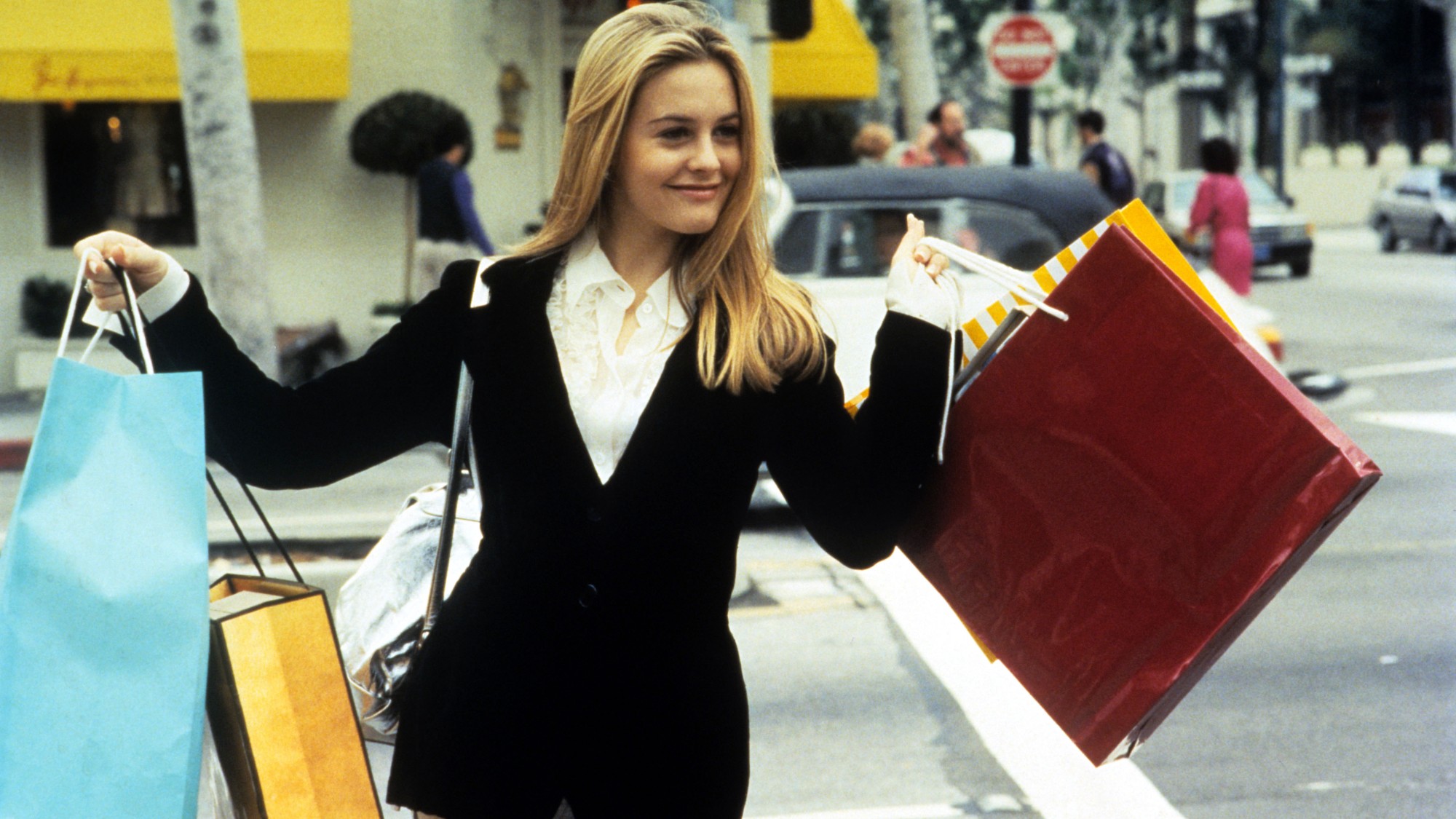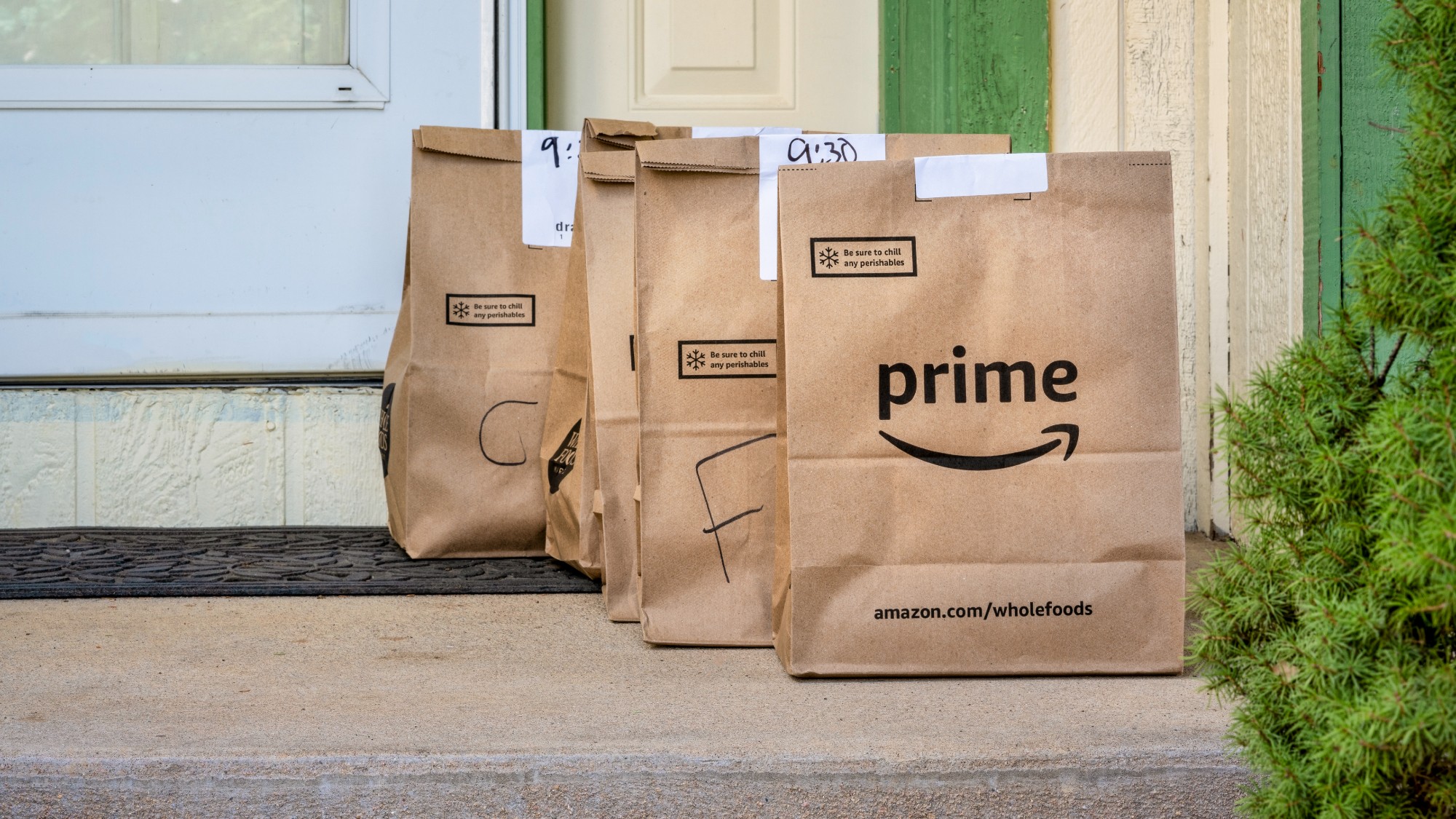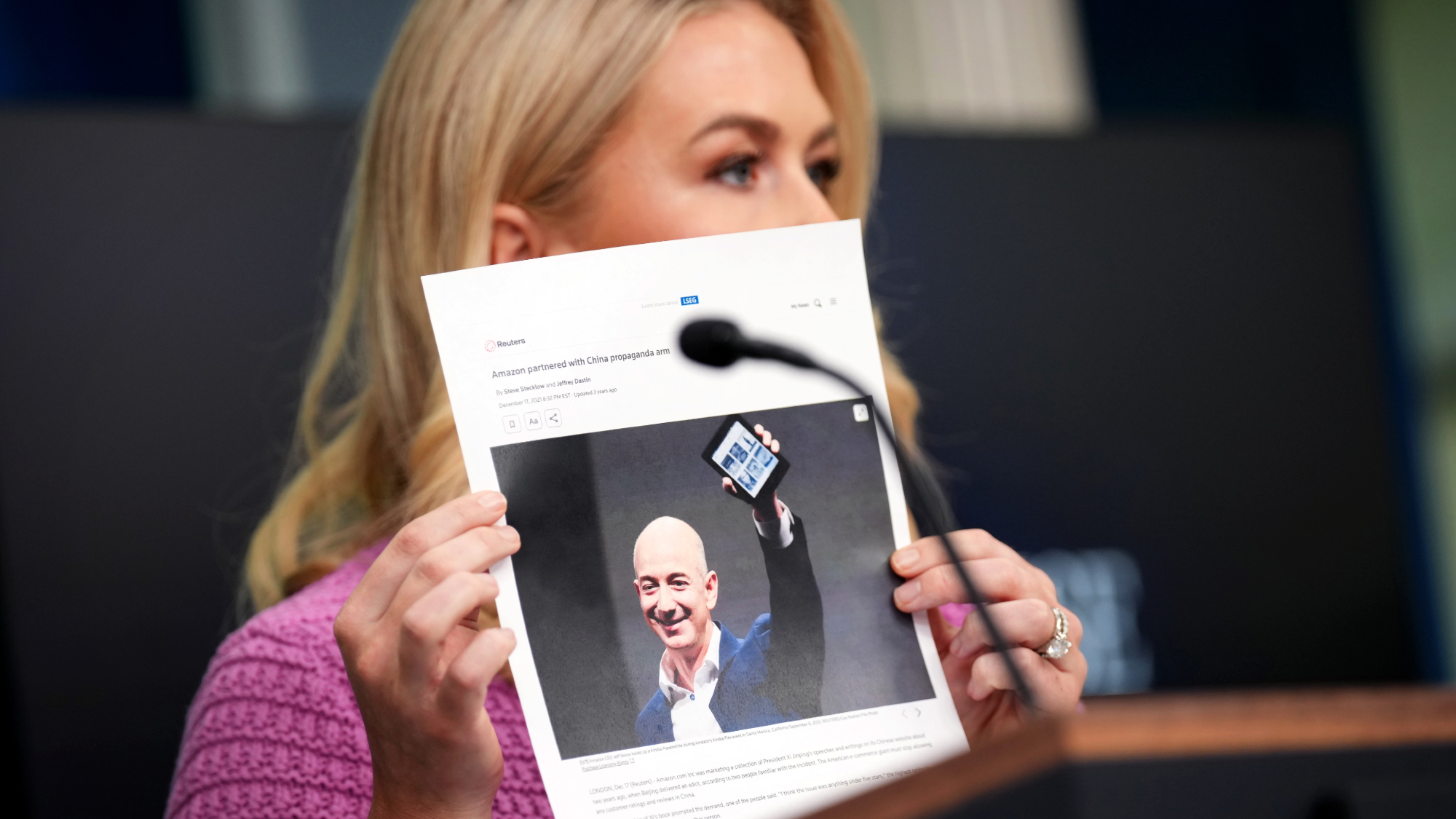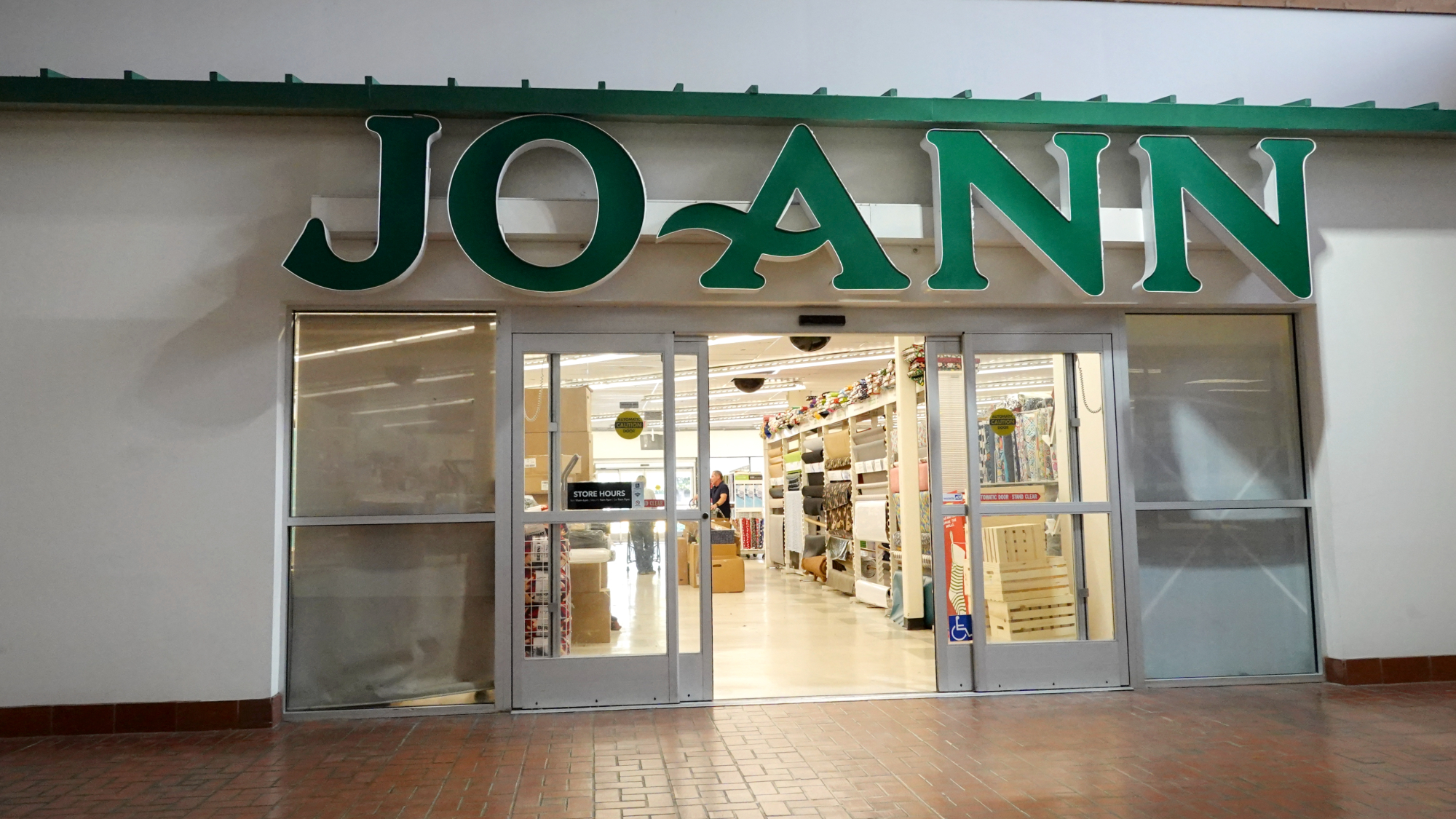Britain's new retail returns nightmare
Gen Z influencers and a 'poopy diaper' have shown up fault-lines in the system

A free daily email with the biggest news stories of the day – and the best features from TheWeek.com
You are now subscribed
Your newsletter sign-up was successful
A serial shoplifter who made a "full-time job" out of claiming £500,000 in refunds on stolen items has refocused attention on the growing pitfalls of retail returns.
Jailing Narinder Kaur for 10 years, a judge said she had indulged in a "veritable tsunami of dishonesty", as she conned high street giants like Debenhams, John Lewis, House of Fraser and TK Maxx into refunding her for items she had stolen.
'Exposed loopholes'
Kaur, 54, was spotted on CCTV taking items from shelves to the tills as if they had been previously purchased. She would play on the goodwill of cashiers or store managers by telling them "sob stories about sick relatives", said the Kidderminster Shuttle. She defrauded retailers "all over the country" more than a thousand times between 2015 and 2019.
The Week
Escape your echo chamber. Get the facts behind the news, plus analysis from multiple perspectives.

Sign up for The Week's Free Newsletters
From our morning news briefing to a weekly Good News Newsletter, get the best of The Week delivered directly to your inbox.
From our morning news briefing to a weekly Good News Newsletter, get the best of The Week delivered directly to your inbox.
Describing her as "without doubt, the most dishonest person I've ever dealt with in 40 years of policing", a fraud investigator for West Mercia Police said she "exposed loopholes in till operating systems", a lot of which "have now been closed".
'Avalanche of returns'
Online returns systems are also prone to abuse. Britain is "being buried" under an "avalanche" of returned clothes thanks to Gen Z influencers, said The Telegraph.
"Hordes" of young TikTok posters are trying on outfits for an "appreciative audience of millions". And after they "wordlessly" cycle through dress after dress, hundreds of commentators "hold forth" on which they think should be kept, and which should be sent back.
The "immensely popular" posts are commonly "racking up views in the hundreds of thousands" and are "emblematic" of how buying and returning masses of clothes is "easier than ever".
A free daily email with the biggest news stories of the day – and the best features from TheWeek.com
But it costs retailers "serious money" to deal with the sheer volume of clothes being returned. Asos said last year that it had suffered a £100 million hit to its profits because shoppers are buying up discounted clothes only to return most of them. UK fashion companies lost at least £7 billion due to returns in 2022, according to the British Fashion Council.
'Gone to hell'
In the face of these issues, some commentators claim that retailers are making it gradually more complicated to return products.
Amazon returns have now "gone to hell", wrote Ian Bogost in The Atlantic. Online retailing's "blanket promise" that "you can always send it back" has become "unsustainable", so the biggest online retailers have gradually "revised, modified, and amended the logistics processes" for returns. All those "small changes" have "started to compound", so "what used to be a simple system for consumers is getting more complex".
So if the returns process "put customers off just enough to dissuade some returns", but "without upsetting the precious idea of free returns", that would be a "net benefit for retailers". An Amazon spokesperson said it would be "patently false and misguided" to claim that any of its return practices are meant to discourage returns.
'Poopy diaper'
Last month, a couple accused Amazon of "crippling their booming nappy business" when a used pair of its swimming nappies was returned and wrongly resold, The Times reported.
Paul and Rachelle Baron initially enjoyed enormous success and sales quickly grew to $1 million but they said their fortunes "took a catastrophic turn" in 2020 when a damning one-star review appeared on their Amazon storefront.
The customer complained that the nappy they ordered had arrived used and with visible stains. "Nothing could have been more disgusting!!" they wrote, alongside photographs of the soiled product. "I am assuming someone returned it after using it and the company simply did not check the item and then shipped it to us as if it was brand-new."
Within weeks, the couple received an email from another customer complaining about a dirty nappy. Amazon is responsible for inspecting returns before marking them safe for resale. The Barons spent "countless hours" on the phone with Amazon trying to get the review removed, and even tried to contact its founder, Jeff Bezos – "to no avail". Amazon told The Times that it had "improved its product return process".
But the Barons are now $600,000 in debt and their home is collateral for a loan, "which impedes them from filing for bankruptcy". Describing the last four years as "an emotional train wreck", Paul Baron said that "shoppers might think returning a poopy diaper to Amazon is a victimless way to get their money back", but "we're a small family business and this is how we pay our mortgage".
Chas Newkey-Burden has been part of The Week Digital team for more than a decade and a journalist for 25 years, starting out on the irreverent football weekly 90 Minutes, before moving to lifestyle magazines Loaded and Attitude. He was a columnist for The Big Issue and landed a world exclusive with David Beckham that became the weekly magazine’s bestselling issue. He now writes regularly for The Guardian, The Telegraph, The Independent, Metro, FourFourTwo and the i new site. He is also the author of a number of non-fiction books.
-
 How to Get to Heaven from Belfast: a ‘highly entertaining ride’
How to Get to Heaven from Belfast: a ‘highly entertaining ride’The Week Recommends Mystery-comedy from the creator of Derry Girls should be ‘your new binge-watch’
-
 The 8 best TV shows of the 1960s
The 8 best TV shows of the 1960sThe standout shows of this decade take viewers from outer space to the Wild West
-
 Microdramas are booming
Microdramas are boomingUnder the radar Scroll to watch a whole movie
-
 Shein in Paris: has the fashion capital surrendered its soul?
Shein in Paris: has the fashion capital surrendered its soul?Talking Point Despite France’s ‘virtuous rhetoric’, the nation is ‘renting out its soul to Chinese algorithms’
-
 Is the job market frozen or faltering?
Is the job market frozen or faltering?Today's Big Question Layoffs raise alarms while young workers eye law school
-
 Is Amazon about to take over the grocery business?
Is Amazon about to take over the grocery business?Today's Big Question Expanded delivery will present a challenge to Walmart and Kroger
-
 Labubu: the 'creepy' dolls sparking brawls in the shops
Labubu: the 'creepy' dolls sparking brawls in the shopsIn the Spotlight Craze for the pint-sized soft toys has reached fever pitch among devotees
-
 Trump calls Amazon's Bezos over tariff display
Trump calls Amazon's Bezos over tariff displaySpeed Read The president was not happy with reports that Amazon would list the added cost from tariffs alongside product prices
-
 Crafting emporium Joann is going out of business
Crafting emporium Joann is going out of businessSpeed Read The 82-year-old fabric and crafts store will be closing all 800 of its stores
-
 What's Jeff Bezos' net worth?
What's Jeff Bezos' net worth?In Depth The Amazon tycoon and third richest person in the world made his fortune pioneering online retail
-
 Amazon's 'James Bond' deal could mean a new future for 007
Amazon's 'James Bond' deal could mean a new future for 007In the Spotlight The franchise was previously owned by the Broccoli family